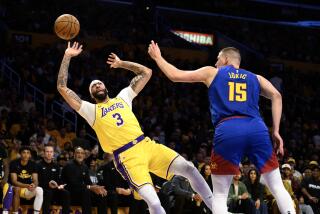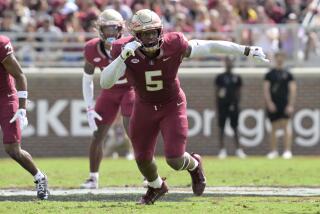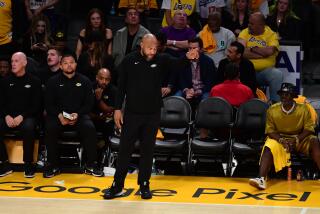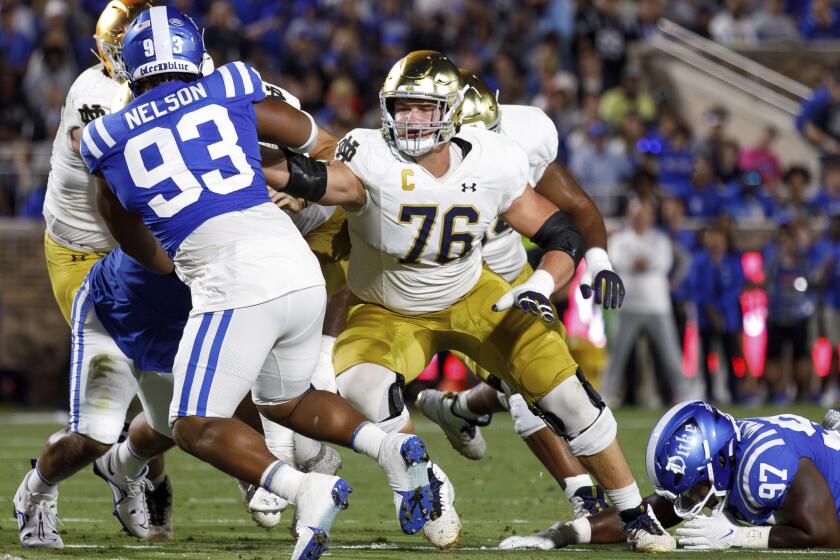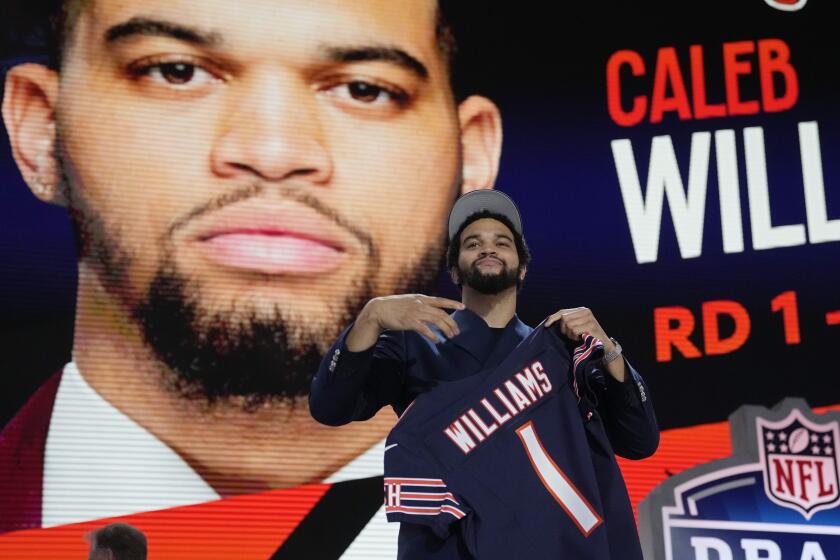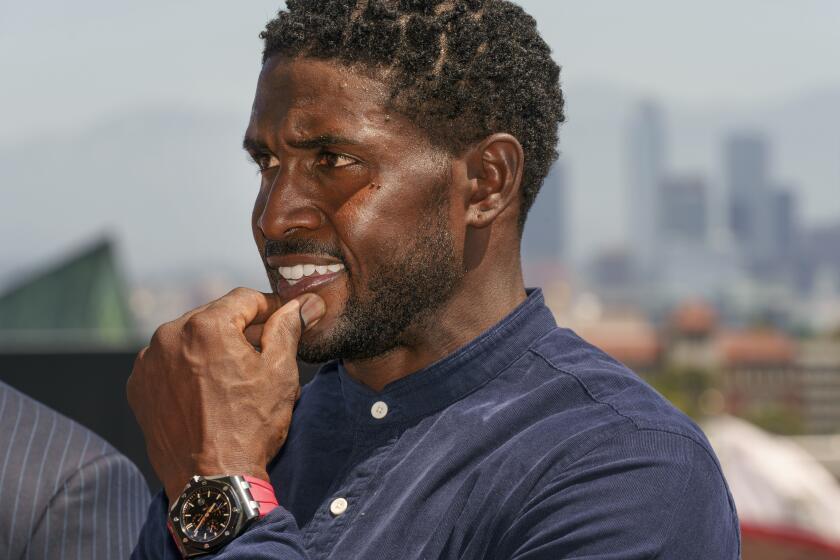Judge Wants Leak Inquiry Report
With sealed information from the criminal case sparked by the BALCO doping investigation published in news reports this week, a federal judge put the case on hold Friday and asked prosecutors to complete an investigation into the source of the leak.
U.S. District Judge Susan Illston was scheduled to address two defense motions but delayed those matters, starting the court session by saying: “I’m a little concerned about all of these newspaper articles.”
On Thursday, the San Francisco Chronicle published grand jury testimony from sprinter Tim Montgomery, one of numerous athletes summoned last year to testify before the grand jury.
Montgomery testified that Victor Conte, the founder of the Bay Area Laboratory Co-Operative, or BALCO, supplied him with steroids and other performance-enhancing substances, the Chronicle reported.
Grand jury testimony is traditionally kept secret, made available before a trial only to lawyers and legal aides connected to a criminal case.
“I think we have, in essence, been convicted in the media,” said Tony Serra, an attorney for one of the four defendants in the case.
Prosecutors are pursuing charges of steroid distribution against Conte, BALCO vice president James Valente, track coach Remi Korchemny and personal trainer Greg Anderson, who worked with baseball slugger Barry Bonds. All four have pleaded not guilty.
In another development, Alvin Harrison, a silver medalist in the 400 meters at the 2000 Sydney Games, informed officials through his attorney that he intends to contest allegations filed against him this week by the U.S. Anti-Doping Agency.
The attorney, Ed Williams, called the doping charges against Harrison “reckless and unfounded.” USADA is seeking to ban the sprinter for life, along with three others charged this week: Montgomery, Chryste Gaines and Michelle Collins.
In a procedural challenge, Williams also informed officials that he is seeking to have the case heard in binding arbitration through what is called the “commercial pool” of available arbitrators.
USADA rules provide for a comparatively limited pool of arbitrators. Some defense attorneys maintain that group has in part been trained by -- and therefore, they allege, would be more inclined to favor -- USADA. The commercial pool is a much broader group of legally trained arbitrators without ties to USADA, a point defense attorneys insist is key.
Though some evidence from the criminal case has been shared with the U.S. Senate and with anti-doping officials, prosecutors said they have distributed copies of the grand jury transcripts only to defense attorneys.
Asst. U.S. Atty. Jeffrey Nedrow said a preliminary investigation has found “not a shred of evidence” that the leak came from his office.
Defense attorneys said much of the information made public this week has been damaging to their clients and asked that a grand jury investigate the matter.
Illston said that before she would consider such a move, she wanted prosecutors to submit an investigation report. She also asked the defendants and their attorneys to file affidavits confirming they did not give out sealed information.
Conte spoke briefly to reporters afterward, rebutting portions of Montgomery’s testimony that described him as supplying steroids to Bonds and being indifferent to the welfare of his former clients.
“I do care very much for the health of the athletes I worked with,” he said. “Anyone who says any different is not telling the truth.”
*
Wharton reported from San Francisco, Abrahamson from Los Angeles.
More to Read
Get our high school sports newsletter
Prep Rally is devoted to the SoCal high school sports experience, bringing you scores, stories and a behind-the-scenes look at what makes prep sports so popular.
You may occasionally receive promotional content from the Los Angeles Times.
